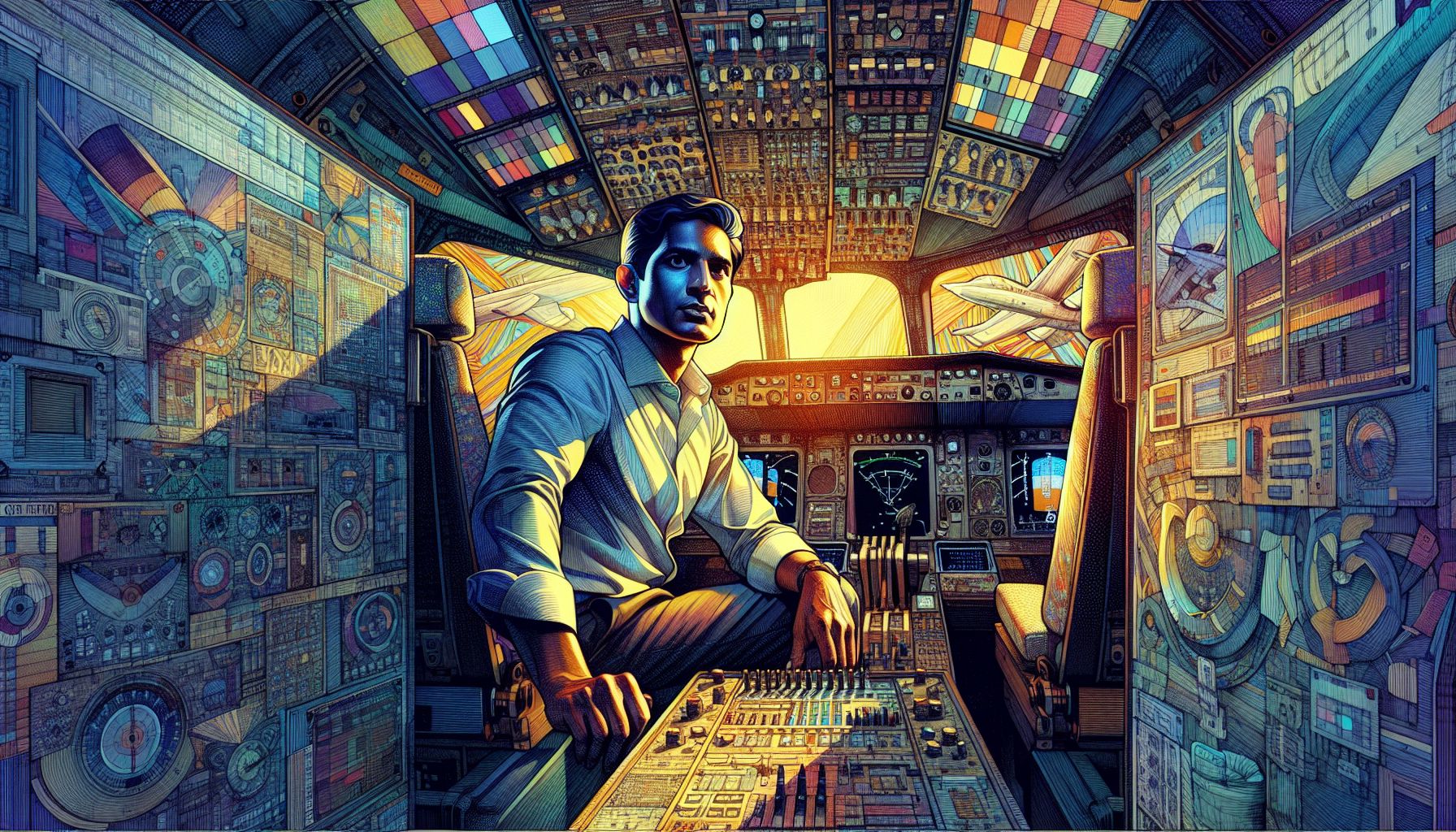Pioneering Aviator: Three Decades of Innovation in Flight Testing

Amsterdam, Thursday, 18 July 2024.
Arun Karwal, a Research Test Pilot at the Royal Netherlands Aerospace Centre, reflects on his 30-year career testing aircraft innovations. His work bridges engineering developments with real-world cockpit applications, contributing to advancements in aviation safety, efficiency, and sustainability.
Shaping Aviation Safety and Innovation
Arun Karwal’s illustrious career at the Royal Netherlands Aerospace Centre (NLR) has been marked by a relentless pursuit of safety and innovation. With over sixteen thousand flying hours under his belt, Karwal has been a pivotal figure in testing cutting-edge technologies that have significantly impacted the aviation industry. His dual expertise as both an aerospace engineer and a commercial pilot has enabled him to translate complex engineering developments into practical cockpit applications, ensuring that new innovations are both viable and safe for everyday use [1].
Pioneering In-Flight WiFi
One of the most notable contributions of Karwal’s career is his work on in-flight WiFi technology. This innovation, now a staple on commercial flights, presented numerous challenges during its development. Designing and testing suitable aircraft antennas and developing a router capable of switching between ground stations were significant hurdles. Thanks to the meticulous testing conducted by NLR under Karwal’s guidance, airplanes today are equipped with both radio and SATCOM antennas, ensuring seamless communication even over the ocean where ground antennas are out of reach [1].
Advancing Sustainable Aviation
Karwal’s commitment to sustainability is demonstrated through his involvement in the European DREAMS project. This initiative focuses on testing alternative landing methods to reduce environmental impact and noise pollution. Furthermore, Karwal has been instrumental in NLR’s experiments with electric flying, using the Pipistrel Velis Electro PH-NLX, an electric aircraft. NLR is currently working on a revolutionary showcase of the Pipistrel Velis Electro that operates on hydrogen, highlighting their role at the forefront of hydrogen research in Europe. This shift towards sustainable aviation is essential in addressing the industry’s environmental challenges [1].
Collaborations and Future Prospects
Throughout his career, Karwal has collaborated with various institutions and manufacturers, including TU Delft and the Ministry of Defence, to conduct fundamental research and test highly developed products. His work has not only enhanced the safety and efficiency of current aviation practices but also paved the way for future innovations. The Cessna Citation, jointly owned by TU Delft and NLR, remains the only operational research aircraft in the Netherlands, underscoring the unique research capabilities that Karwal and his team bring to the table [1].
A Legacy of Innovation
Reflecting on his 30-year journey, Arun Karwal takes immense pride in seeing the innovations he tested being implemented in regular flights. His favorite flights, parabolic flights with TU Delft, simulate conditions of weightlessness experienced in space, showcasing his diverse experience and contributions to both aviation and aerospace. As Karwal continues to push the boundaries of aviation technology, his legacy serves as an inspiration for future generations of engineers and pilots committed to making air travel safer, more efficient, and environmentally sustainable [1].

